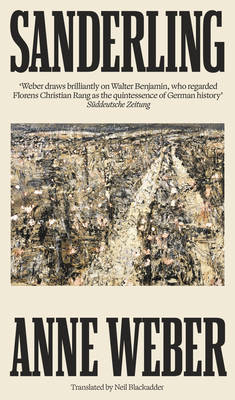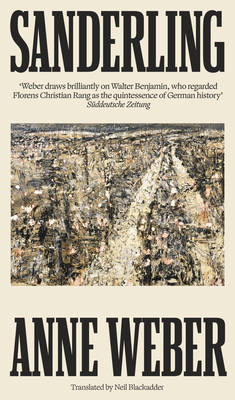
Bedankt voor het vertrouwen het afgelopen jaar! Om jou te bedanken bieden we GRATIS verzending (in België) aan op alles gedurende de hele maand januari.
- Afhalen na 1 uur in een winkel met voorraad
- In januari gratis thuislevering in België
- Ruim aanbod met 7 miljoen producten
Bedankt voor het vertrouwen het afgelopen jaar! Om jou te bedanken bieden we GRATIS verzending (in België) aan op alles gedurende de hele maand januari.
- Afhalen na 1 uur in een winkel met voorraad
- In januari gratis thuislevering in België
- Ruim aanbod met 7 miljoen producten
Zoeken
Omschrijving
How do you live with a history you can't escape? What did it mean to be German one hundred years ago? And what is it like today? These are the questions at the heart of Sanderling, a classic work of literary inquiry by Anne Weber, one of Germany's leading contemporary authors. Weber embarks on a personal journey into the past to uncover the life of her great-grandfather Florens Christian Rang (1864- 1924), whom she nicknames Sanderling after the darting shorebird. A Protestant pastor in Prussian-ruled Poland, Rang served a church whose mission to "Germanise" the local population would later be echoed in the murderous ambitions of the Third Reich. After leaving the church, Sanderling moved in the circles of Walter Benjamin, Hugo von Hofmannsthal, and Martin Buber. He joined a group of writers, artists, and philosophers who dreamed of a utopian society, even as one of his sons, Weber's grandfather, would go on to become a Nazi. By deciphering his letters and diaries, and travelling in his footsteps to Poland, Weber traces the contradictions and crises, the reckonings and departures of a complex legacy. With literary and philosophical references including Sontag, Sebald and Nietzsche, Weber combines her family history with a broader examination of ethics and morality to create a travel diary through time, reaching back to understand her ancestors.
Specificaties
Betrokkenen
- Auteur(s):
- Vertaler(s):
- Uitgeverij:
Inhoud
- Aantal bladzijden:
- 240
- Taal:
- Engels
Eigenschappen
- Productcode (EAN):
- 9781917378055
- Verschijningsdatum:
- 10/02/2026
- Uitvoering:
- Hardcover
- Formaat:
- Genaaid
- Afmetingen:
- 127 mm x 197 mm
- Gewicht:
- 306 g

Alleen bij Standaard Boekhandel
+ 41 punten op je klantenkaart van Standaard Boekhandel
Beoordelingen
We publiceren alleen reviews die voldoen aan de voorwaarden voor reviews. Bekijk onze voorwaarden voor reviews.









